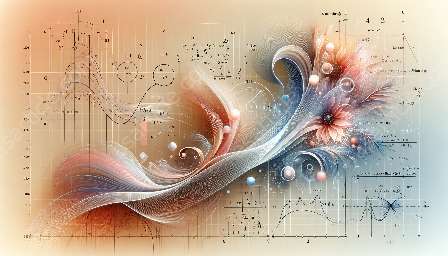Scientific experiments are essential for advancing knowledge and understanding in various fields. However, the accuracy and reliability of experimental results can be influenced by errors. Error analysis plays a crucial role in identifying, understanding, and mitigating errors in scientific experiments. This topic cluster explores the significance of error analysis and how mathematics and statistics are integral to understanding and addressing errors in scientific research.
The Importance of Error Analysis
Error analysis is the process of examining and quantifying the errors, uncertainties, and variations that can affect the outcome of scientific experiments. It involves identifying the sources of errors, evaluating their impact, and determining how they can be minimized to improve the reliability of experimental results. By conducting thorough error analysis, researchers can enhance the accuracy and precision of their findings, leading to more robust conclusions and a better understanding of the phenomena under investigation.
Types of Errors in Scientific Experiments
Errors in scientific experiments can be categorized into different types, including systematic errors, random errors, and human errors. Systematic errors result from consistent inaccuracies in the experimental setup or measurement process, leading to biased results. Random errors, on the other hand, are unpredictable fluctuations that can affect measurements and result in variability in the data. Human errors may occur due to mistakes or judgment errors made by researchers during the experiment.
Understanding the nature of these errors and their impact on experimental outcomes is essential for conducting reliable and reproducible scientific research. Through error analysis, researchers can quantify the magnitude of different error components and take steps to minimize their influence on the results.
Role of Mathematics and Statistics in Error Analysis
Mathematics and statistics are fundamental tools for analyzing and interpreting experimental data, especially when it comes to dealing with errors. Statistical methods enable researchers to assess the variability and uncertainty in their measurements, allowing them to distinguish genuine effects from random fluctuations. Moreover, mathematical models and computational techniques can be used to identify patterns in data and determine the relationships between different variables.
When it comes to error analysis, mathematical and statistical approaches provide valuable insights into the accuracy and precision of experimental measurements. These methods enable researchers to quantify uncertainties, assess the significance of observed effects, and validate the reliability of their findings. By applying rigorous mathematical and statistical techniques, researchers can enhance the robustness of their experimental results and draw more reliable conclusions from their data.
Quantifying and Mitigating Errors
Quantifying the magnitude of errors and uncertainties in scientific experiments is essential for evaluating the reliability of results. Through mathematical and statistical analysis, researchers can calculate error bars, confidence intervals, and other measures of uncertainty to communicate the precision of their findings. Additionally, techniques such as regression analysis, hypothesis testing, and error propagation allow researchers to assess the impact of errors on their conclusions and make informed decisions about the validity of their results.
Furthermore, mitigating errors in scientific experiments often involves optimizing experimental protocols, calibrating measurement instruments, and performing repeated trials to account for variability. By integrating mathematical and statistical considerations into the experimental design and data analysis processes, researchers can effectively minimize the influence of errors and enhance the credibility of their scientific findings.
Challenges and Considerations
Despite the importance of error analysis in scientific experiments, challenges and considerations exist in effectively managing and addressing errors. Researchers must be mindful of potential biases, confounding factors, and limitations in measurement precision that can impact the quality of experimental data. Moreover, interpreting and communicating the significance of errors in a transparent and reproducible manner is essential for maintaining the integrity of scientific research.
By embracing robust mathematical and statistical approaches, researchers can navigate these challenges and contribute to the advancement of knowledge in their respective fields with greater confidence and reliability.
Conclusion
Error analysis is an indispensable aspect of scientific experimentation, enabling researchers to identify, quantify, and address errors that can influence the reliability of experimental results. By incorporating mathematical and statistical methodologies, researchers can gain deeper insights into the nature of errors, enhance the precision of their measurements, and bolster the credibility of their findings. Understanding the critical role of error analysis and the contributions of mathematics and statistics is essential for conducting rigorous and impactful scientific research.

